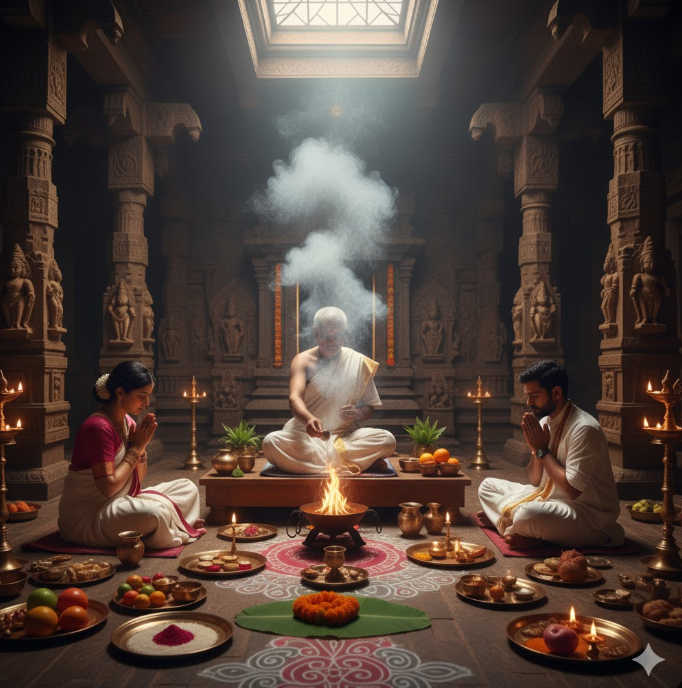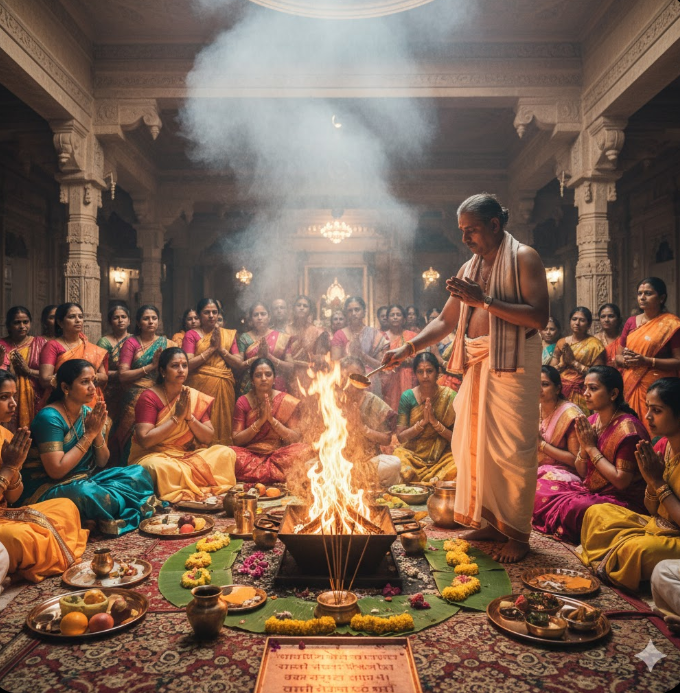In Hindu tradition, Kula Deivam (குல தெய்வம்) is the family deity worshipped across generations, particularly in Tamil Nadu. The word “Kula” means lineage or clan, and “Deivam” means divine being. Thus, Kula Deivam is the guardian deity of a family, believed to protect its members, bless their prosperity, and preserve ancestral values.
For Tamil families, worshipping Kula Deivam is not just a ritual but a sacred duty that maintains spiritual continuity across generations.
Importance of Kula Deivam Worship
Tamil Hindus strongly believe that the family deity safeguards their lineage from difficulties and ensures good health, prosperity, and unity. Key reasons families visit their Kula Deivam temple include:
- Blessings for marriages, childbirth, and new beginnings.
- Offering thanks during festivals like Pongal, Navaratri, or Aadi Amavasai.
- Seeking protection during times of illness or hardship.
- Strengthening the family bond through shared worship.
Popular Kula Deivam Deities in Tamil Nadu
Every family’s Kula Deivam may differ, but some common guardian deities include:
- Lord Murugan (Subramanya) – Popular in many Tamil families, worshipped in temples like Palani Murugan Temple and Swamimalai Murugan Temple.
- Amman (Goddess Shakti) – Many Tamil families worship village guardian goddesses such as Mariamman, Kaliamman, or Angala Parameswari.
- Lord Shiva – Worshipped in temples like Adi Kumbeswarar Temple (Kumbakonam) or Brihadeeswarar Temple (Thanjavur).
- Lord Vishnu – Families devoted to Vishnu worship him at temples like Sarangapani Temple (Kumbakonam) or Sri Ranganathaswamy Temple (Srirangam).
- Village Guardian Deities (Grama Devata) – Deities such as Ayyanar, Karuppasamy, Muniswarar are widely revered as family protectors.
Famous Kula Deivam Temples in Tamil Nadu
Some temples are especially known as ancestral or family deity temples, visited by devotees across Tamil Nadu:
- Samayapuram Mariamman Temple (Trichy) – A powerful Amman temple believed to be the Kula Deivam for many families.
- Palani Murugan Temple (Dindigul) – One of the Arupadai Veedu (six abodes of Murugan), often regarded as a family deity shrine.
- Swamimalai Murugan Temple (Kumbakonam) – A major Murugan shrine and popular Kula Deivam temple.
- Mutharamman Temple (Kulasekarapattinam, Thoothukudi) – Worshipped as Kula Deivam by families in southern Tamil Nadu.
- Angala Parameswari Temple (Melmalayanur, Villupuram) – A powerful goddess temple serving as Kula Deivam for several lineages.
- Ayyanar Temples (rural Tamil Nadu) – Often worshipped as the protective deity for villages and family lineages.
Rituals and Worship Practices
Families worship their Kula Deivam during special occasions and annual visits. Common rituals include:
- Abhishekam and Archana – Ritual bathing and prayers to the deity.
- Offering Pongal, fruits, coconuts, and flowers.
- Animal sacrifices (in some rural traditions) to village guardian deities.
- Annadhanam (food offering) shared with family and community.
Kula Deivam vs. Ishta Devata
- Kula Deivam → Ancestral guardian deity worshipped by the whole family lineage.
- Ishta Devata → Personal deity chosen by an individual (like Krishna, Shiva, or Lakshmi).
Most Tamil families honor both—ensuring respect for traditions while maintaining personal devotion.
Why Kula Deivam Worship Still Matters Today
In the modern world, where many families live away from their ancestral villages, Kula Deivam worship connects people to their roots. Even Tamil families living abroad make it a point to visit their Kula Deivam temple during trips to India, ensuring their children stay connected to tradition.





Leave a Reply